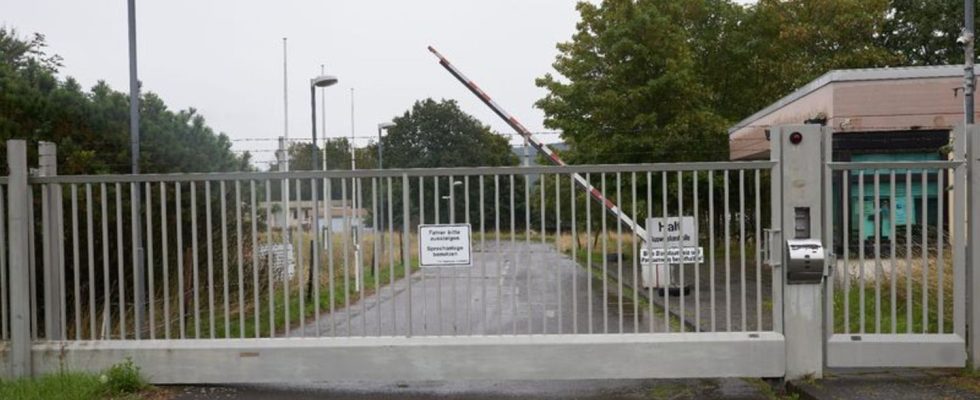Cybercrime
BGH ruling on the Traben-Trarbach cyber bunker gang
View of the site of a former Bundeswehr bunker in Traben-Trarbach, which became known as the cyber bunker. photo
© Thomas Frey/dpa
Cyber criminals carry out drug crimes, data theft and counterfeit money transactions in a bunker on the Moselle. The prosecution accuses them of aiding and abetting, but the regional court does not accept this. Now the BGH has decided on this.
When the police excavated the first German darknet center in a former NATO bunker in Rhineland-Palatinate around four years ago, there was a great stir. Now the verdict in one of the largest trials in the country is over Cybercrime largely has legal force.
The Federal Court of Justice (BGH) in Karlsruhe largely rejected the appeals, tightened the guilty verdicts to a certain extent and only referred the matter again to the Trier regional court with a view to confiscating seized technology. Above all, the Third Criminal Senate made it clear that no different standards apply to crimes on the Internet than in the analogue world.
The highly secure computing and data processing center, operated under the company name Cyberbunker, was located in a former NATO bunker facility in Traben-Trarbach. Police seized 886 physical and virtual servers with two million gigabytes of data; it was a “bulletproof hoster” that was supposed to be safe from access by police and governments.
You could rent web presences anonymously, without a contract and paid, preferably in an untraceable manner, in the cryptocurrency Bitcoin. If abuse was reported, the operators offered help with concealment.
More than 249,000 crimes
The seven men and one woman were basically not interested in what was happening on the servers. Anything was possible – except terrorism and child pornography. More than 249,000 crimes were carried out: drug deals worth millions of euros, data theft, computer attacks and counterfeit money transactions.
The Koblenz Public Prosecutor’s Office also charged the four Dutchmen, three Germans and one Bulgarian, now aged 24 to 63, with aiding and abetting the crimes committed by their customers. At the end of 2021, the regional court only found her guilty of membership in a criminal organization and imposed prison sentences ranging from one year suspended to five years and nine months.
For the first time, operators of criminal platforms on the Darknet were brought to justice in Germany. But the public prosecutor and all defendants appealed. The latter were of the opinion that, as web hosts, they were not responsible for the content of the servers they operated and should be acquitted.
“Aimed at particularly serious crimes” – but not an accessory intent
The BGH has now confirmed the regional court’s decision on this point: the defendants had pursued the common interest of making the cyber bunker available. They put a lot of effort into this and helped conceal the activities of their customers. Some of the accused even lived on the premises. The ringleader, who bought the old Bundeswehr bunker in 2013 for 450,000 euros, also only allowed employees who expressly approved of the cyber bunker’s intentions.
The Third Criminal Senate even tightened the guilty verdicts to the effect that the association was “aimed at particularly serious crimes.” Chairman Jürgen Schäfer spoke of a significant threat to public safety posed by the machinations. (Af. 3 StR 306/22)
However, the judges and the regional court did not see any intent to assist. To do this, you have to have a precise idea of the intended actions. Simply encouraging any crime – as the cyber bunker gang did – is not enough, said Schäfer. No other standards should be applied for cybercrimes. He pointed out that the legislature only introduced the criminal offense of operating criminal trading platforms on the Internet in 2021 – so they apparently saw a gap here.
Defender: “Victory for data protection”
Defense attorney Jürgen Graf, once a criminal judge at the BGH, also emphasized this aspect. Web hosts would not have to face penalties unless they can be proven to be members of a criminal organization. After the roughly hour-long verdict, Graf spoke of a “victory for data protection.”
Another chamber of the regional court must once again deal with detailed questions about confiscated technology. The regional court rejected this for some of the seized equipment. The BGH also slightly changed the amount of money to be confiscated from one of the convicted men due to a calculation error.

